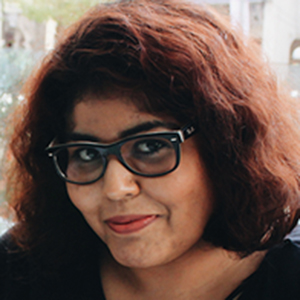 While Malaysia is metaphorically haemorrhaging blood, I’d like to talk about blood of another kind. The kind that sheds at the end of the menstruation cycle if fertilisation of the ovum does not take place.
While Malaysia is metaphorically haemorrhaging blood, I’d like to talk about blood of another kind. The kind that sheds at the end of the menstruation cycle if fertilisation of the ovum does not take place.
Menstruation, or as we often call it, period, presumably because it is the period that we have been socially conditioned to be wary or avoid women.
As a person who has been “gifted” biologically with a functioning uterus that goes into self-destruct mode every x number of days, I was raised to not talk about it. In my early years of contracting this gift, I’d slink off to my room to crouch on my bed, crying the cramps away.
My mother would magically appear beside me, with a hot beverage and much tenderness. “Lie on your back, put the pillow on your stomach,” she would say gently. She was the only one in the house I could talk to about the pain, and even then, I’d feel embarrassed because if she can go through her periods without kicking up a fuss, why then could I not? That was my equivalent of the “be a man” pressure, or a perverse version of “real women” (don’t whine about their period).
Going to an all-girls school made it easier for me to talk about periods to my friends, but then again, there was always that shame. Sanitary pads were hidden and transported conspicuously as though they were some contraband, and should a pad be needed when one was out of supply, the deals were done via whispers. Pinafore backs were always checked to ensure no stray leakages had occurred, lest we announce to the whole world we were in that time of the month when our bestie was visiting us.
College was quite a liberation in many ways, even in terms of period. This was the time to hear about different types of sanitary options. There was more than sanitary pads to try; tampons – with or without applicators and menstrual cups.
Through Inga Muscio’s “Cunt”, I learnt about the sea-sponge. Who would have thought? Period was talked about more openly, and the taboos around menstruation cropped up as topics for essays. It was okay to be able to say I don’t feel like going out or doing something because I were periody, and it was okay to cry should I feel hormonal.
I grew up in a Malaysian Indian family that despite being fairly progressive still held on some beliefs surrounding menstruation. I fought hard to not be made to endure the menarche (first period) rituals that some South Indian cultures practice. Once during a family holiday with the extended family, my sanitary pads fell out of my bag and for years since, I was always reminded to “mind my things”. It was as though I had revealed a shameful secret and thus must ensure to never repeat it again.
That it was okay to cry or to feel things because of period and being hormonal was, for me, the biggest liberator. We (re: women) are told since young that to be successful we need to be like men. Men don’t menstruate, so you (women), should you want to be successful in your job/studies/life/etc., don’t whine about your female things. Don’t talk about your period because it is GROSS! You can’t be a good leader because you menstruate.
Nowadays, I go on a “menstrual rage” whenever I feel like my period is just too much to handle. It happens at work or when I am out with friends; it happens when I am tired of pretending that everything is okay when in actuality my uterus feels like it is being ripped apart from the inside and my hormones are making me teary for no reason. At most, my “menstrual rage” is a speech on how we are taxed and made to pay for our biological parts, and how the world expects us to endure our monthly tribulation with a smile on our face.
In a world that silences women by telling them that their period is dirty and shameful, the way to reclaiming our power is by talking about our periods. Remember, the personal is political, and so is our blood. – August 9, 2015.
* This is the personal opinion of the writer or publication and does not necessarily represent the views of The Malaysian Insider.


Comments
Please refrain from nicknames or comments of a racist, sexist, personal, vulgar or derogatory nature, or you may risk being blocked from commenting in our website. We encourage commenters to use their real names as their username. As comments are moderated, they may not appear immediately or even on the same day you posted them. We also reserve the right to delete off-topic comments